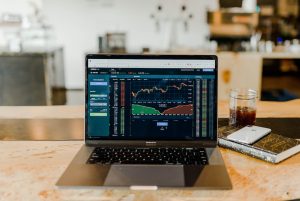Is Forex Trading a Scam? The Truth Behind Forex Scams and How to Avoid Them
Forex trading has gained tremendous popularity over the years, attracting both seasoned investors and novices looking to make quick profits. However, due to its decentralized and largely unregulated nature, the forex market has become a breeding ground for scams and fraudulent activities. In this article, we will explore the truth behind forex scams and provide you with essential tips on how to avoid falling victim to them.
Forex trading, also known as foreign exchange, is the process of buying and selling currencies with the aim of making a profit from the fluctuations in their exchange rates. It is the largest and most liquid financial market in the world, with an average daily trading volume of over $6 trillion. This vast liquidity and high potential for profits have attracted many individuals and organizations looking to exploit unsuspecting traders.
One common forex scam is the “get rich quick” scheme, where fraudsters promise extraordinary profits with little to no effort. These scammers often lure inexperienced traders with flashy advertisements, promising guaranteed returns and secret trading strategies. They may even go as far as faking testimonials and account statements to create an illusion of success.
Another type of forex scam is the signal provider scam. Signal providers claim to have insider knowledge or access to advanced trading algorithms that can generate profitable trade signals. These signals are supposed to guide traders in making profitable trades. However, many signal providers are nothing more than charlatans trying to make a quick buck. Their signals are often random or based on publicly available information, leading to losses for the unsuspecting traders who follow them.
One of the most dangerous forex scams is the Ponzi scheme. In a Ponzi scheme, fraudsters promise high returns to investors and use the money from new investors to pay off the returns of earlier investors. This cycle continues until the fraudsters can no longer attract new investors or the scheme collapses under its own weight. Ponzi schemes are illegal and can result in severe financial losses for those involved.
To avoid falling victim to forex scams, it is essential to educate yourself and exercise caution. Here are some tips to help you navigate the forex market safely:
1. Research and due diligence: Before investing in any forex trading platform or signal service, research the company thoroughly. Check their track record, reviews, and reputation in the trading community. Look for any red flags or complaints from previous users.
2. Regulation and licensing: Ensure that the forex broker or platform you choose is regulated by a reputable financial authority. Regulatory bodies such as the Financial Conduct Authority (FCA) in the UK and the Commodity Futures Trading Commission (CFTC) in the US enforce strict rules and standards to protect investors.
3. Transparency: Legitimate forex brokers will provide clear and transparent information about their fees, trading conditions, and customer support. Be wary of brokers that are vague or evasive when answering your questions.
4. Unrealistic promises: Beware of forex brokers or signal providers that promise extraordinary profits with little risk. Forex trading involves a degree of risk, and no one can guarantee consistent profits. If something sounds too good to be true, it probably is.
5. Educate yourself: Forex trading is a complex field, and it is crucial to have a solid understanding of the fundamentals and technical analysis. Invest time in learning about different trading strategies, risk management, and money management techniques. This knowledge will help you make informed decisions and avoid falling for scams.
6. Trust your instincts: If something feels off or too good to be true, trust your gut instinct. Scammers often use high-pressure sales tactics or emotional manipulation to convince you to invest. Take your time, do your research, and never invest more than you can afford to lose.
In conclusion, forex trading is not inherently a scam, but it is an industry that attracts scammers due to its decentralized and largely unregulated nature. By educating yourself, conducting thorough research, and exercising caution, you can minimize the risk of falling victim to forex scams. Remember, the key to successful forex trading lies in knowledge, discipline, and patience.





